Disclosure: Meeple Mountain received a free copy of this product in exchange for an honest, unbiased review. This review is not intended to be an endorsement.
Terra Mystica is a sort of game design white whale — there have been dozens and dozens of imitators (Barrage, Horizons, Clans of Caledonia) and even when the designers of the original system have attempted to riff on their own design (Gaia Project), it often feels like some ineffable ingredient, some key to the special sauce, is missing.
I’ll tell you what I think that special sauce is in a minute, but I’m talking about Gold West here, and while Terra Mystica might not be the game design that immediately springs to mind, bear with me.
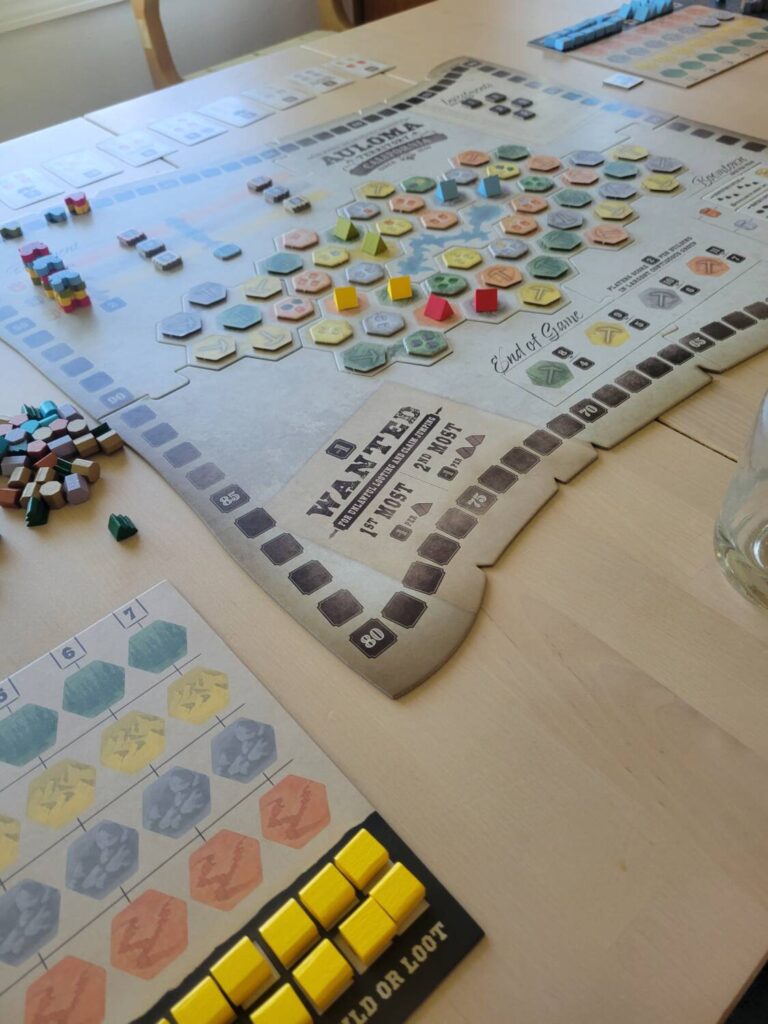
Gold West is a game by J. Alex Kevern, mostly known for Succulent, World’s Fair 1893, Passing Through Petra, and the under-rated Daxu. The game is relatively straightforward. Each turn, you generate resources, then you move on some tracks, buy an endgame scoring condition, and/or fulfill a contract card. After you’ve done that, you build a camp on the board, a settlement if you’ve got more resources, or you “loot,” which is where you gain resources but build nothing on the board.
The resource engine of the game is the defining puzzle of the enterprise. Many people have compared it to a mancala system like the one you see in Trajan, which I don’t think is inaccurate, but it feels a bit more like the bowls of power in the aforementioned Terra Mystica. You have a little track on the side of your player board which has four spaces in it, 3,2,1,0. When you build a camp, you gain a combination of the game’s five resources, which you must place all together in one of the four spaces, gaining the number of points that are written on the bin (place in the 3 bin, you get 3VPs).
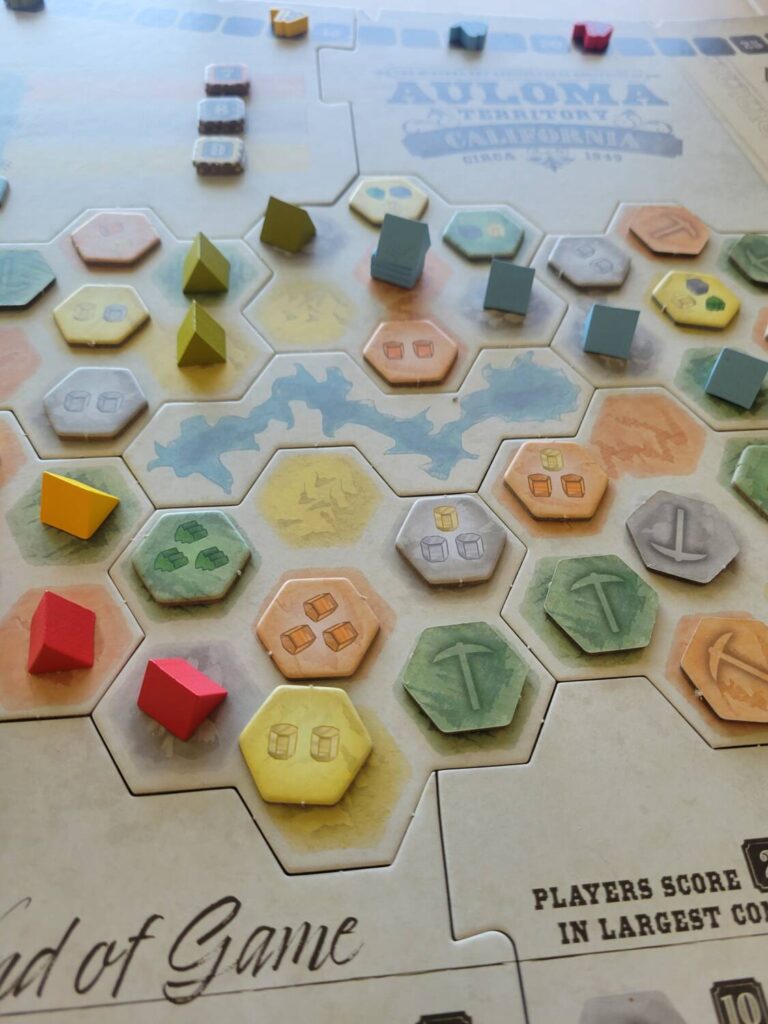
When you activate your resource generator at the beginning of your turn, you pick up a pile of resources and move up the track, dropping one resource in each bin, until you move off the board, and those are the resources you get to use for the turn. Anything you don’t use is wasted. You use the resources to build a camp (1 wood/1 stone) a settlement (1 wood + 1 stone) or you use them to fulfill the aforementioned contracts, move up tracks, or grab endgame scoring spots in a grid on the right side of the board.
So, that special sauce I mentioned earlier. If you’re not familiar, Terra Mystica is a complex resource management and area control game where players build a personal economy in a shared board space. What makes the game wholly unique is that the game has an external ecosystem that you have to tap into to win—you literally terraform terrain away from your opponents so you can claim it for yourself. A crucial component of the TM economy is understanding where your opponents are likely to build and how you can intervene and benefit from those builds. The bowls of power within the game function as a miniature mancala-like system where you are constantly making decisions on how to transmute your various resources into stuff that scores you points at a greater rate than your opponents can. You are always facing tense sacrifices, often having to make slightly suboptimal decisions to grab land, point generation potential, and limited action spaces before your opponents can.
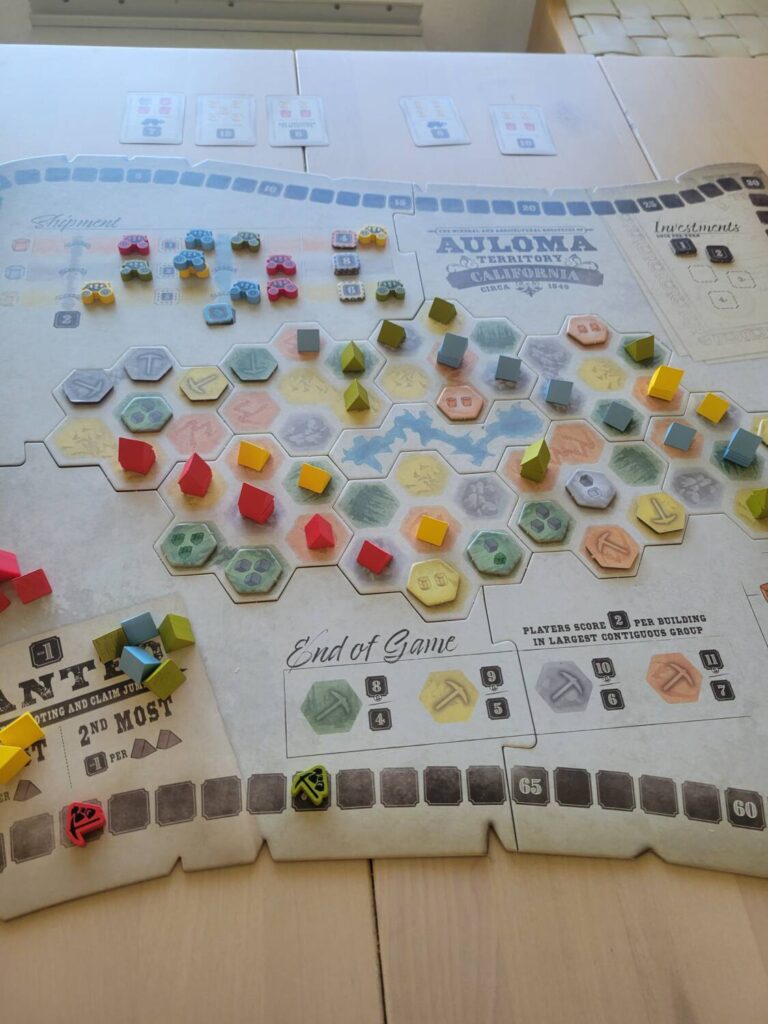
This is not a review of Terra Mystica (TM), but what has made that design so successful and imitated is that in its 2-3 hour playtime, you find yourself doing what feels like wizardry, spinning dozens of plates on your head, fingers, and toes in an attempt to find some solid ground to stake your claim and win on. Gold West pulls parts of this formula, but because of its truncated hour-long playtime and the friendly openness of the playing field, it often feels like it’s a cover band rather than a main event. It’s a game that’s designed to be played in an hour.
You win Gold West through a combination of things that will be familiar to TM players—there are end-of-game objectives that you have to time properly and grab at an opportune moment earlier in the game, in spite of not knowing how many points they’re going to pan out for in the final reckoning (similar to the end-of-round scorings in TM) and there are three tracks that you gain points for by advancing up more quickly than other players. Finally, if you built camps/settlements on the most of one of each of four terrain types, there’s points for that too.
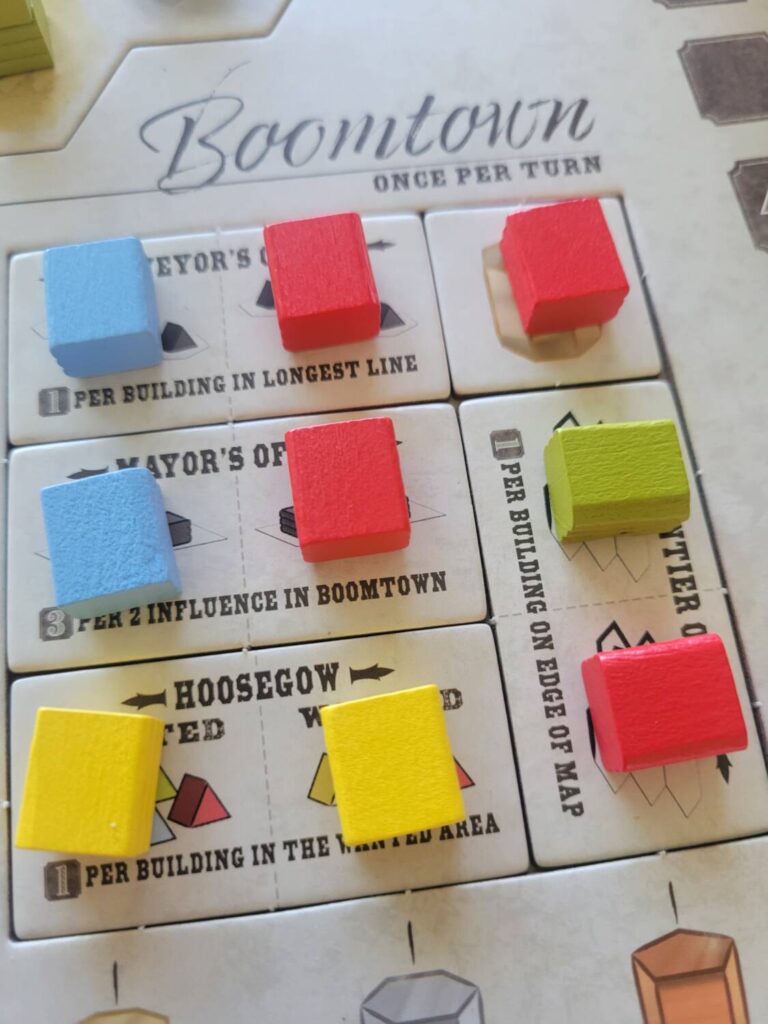
You might get through this and be like, wow, man, this guy has just got Terra Mystica on the brain. But I suppose that as I’ve played and reviewed more and more low-interaction resource converter eurogames, I start to see themes, repeats of old chords and echoes of melodies that once captured my imagination. But those little twinges of nostalgia don’t nourish in the way that bold creative choices do.
Gold West is safe—workmanlike—which is harder to pull off than you might think. It contains some of the DNA of one of the greatest games of all time, and it nobly attempts to synthesize the excitement juice of its spiritual progenitor, but it can’t quite get there. All that said, if you’re looking for a game that has whiffs of the resource management you find in Terra Mystica, you could do a whole lot worse. But, you could do a lot better as well.


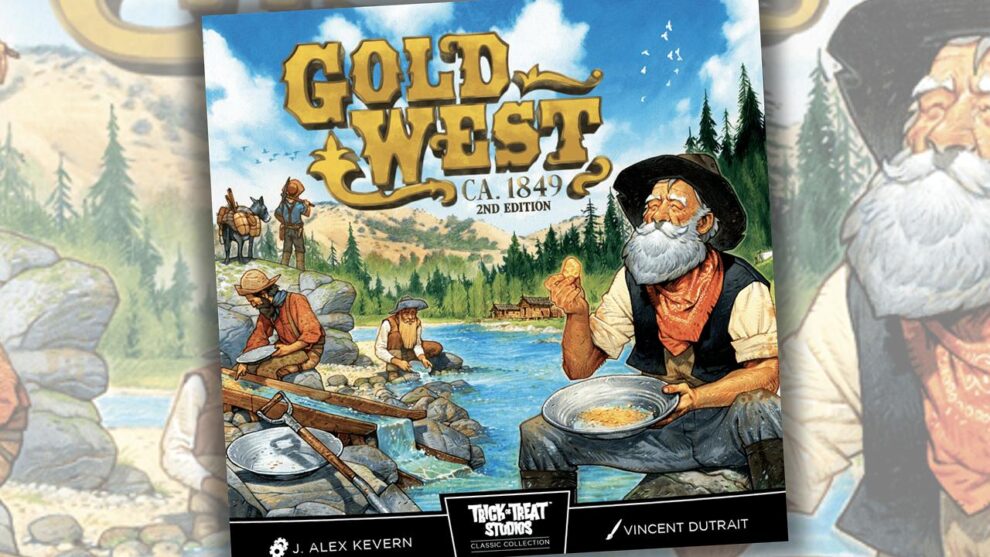
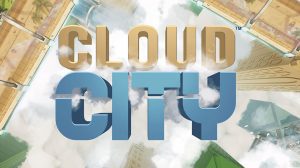
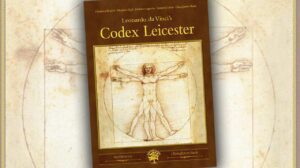






Add Comment